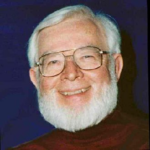Harvard historian of science Naomi Oreskes is best known to climate realists for her 2010 screed Merchants of Doubt, but a short, obscure, error-riddled essay she wrote as a chapter in the book How Well Do Facts Travel? The Dissemination of Reliable Knowledge is more significant. In it she examines the 1991 origin of the “skeptics are paid industry shills” narrative found in a legendary set of “leaked Western Fuels memos.”
Oreskes’ chapter is important because she interprets the memos as industry’s plan for a vast national campaign using paid climate scientists to create lasting public doubt about global warming. That’s the same interpretation repeated ad nauseam by climate alarmists such as Al Gore, Ross Gelbspan (1997’s The Heat Is On), and Canadian attack website DeSmogBlog.
Appallingly, nobody in this parade of critics ever fact-checked the memos, not even historian Oreskes. Critics misinterpreted what they were looking at in the hundred-or-so pages of “Western Fuels memos.” They cherry-picked pieces that made skeptics look worst and patched them together into an assumption-laden fairy-tale.
Memos Misnamed, Misunderstood
According to Russell Cook’s excellent Heartland Institute Report Merchants of Smear, and numerous interviews with the “memo” sources, all the critics had was a hodgepodge of e-mail exchanges from a loose coalition of 24 large and small electric utilities worried about a carbon tax bill in Congress.
The fairy tale spinners focused only on emails from the utilities’ coal suppliers. The coalition explored lobbying to raise public concern about the impact of the tax, along with pointing out the weaknesses in the claims humans were causing climate change, using well-established skeptical scientists as spokesmen to balance the deluge of alarmist publicity.
The “memos” were the everyday work products of coalition members—including the Edison Electric Institute, a large trade group of investor-owned utilities—filed away in no particular order. EEI coordinated the most misinterpreted document, a campaign proposal by opinion survey firm Cambridge Reports of Massachusetts. The other “memos” included letters, meeting notices, reports from a hired Washington public relations firm, sample ads from a North Dakota direct mail firm, and similar items.
Innocuous Trade Association Demonized
Less than one-third of the jumbled “memos” involved Western Fuels Association. It’s ironic that they became known as the “Western Fuels memos,” because WFA is just the opposite of what the alarmist critics thought. It wasn’t a lobbying group but rather a nonprofit, member-owned co-op serving consumer-owned rural electric cooperatives and other public power systems. WFA manages mining and transportation of coal from member-owned mines and buys additional coal in the open market, facts printed on the inside cover of WFA’s annual reports.
The coalition’s climate skeptics picked the semi-humorous acronym “ICE,” and Cambridge Reports suggested several names to fit, including “Informed Citizens for the Environment” and “Information Council for the Environment.” Western Fuels used the latter.
The single most misinterpreted page, “Strategy,” listed nine goals, topped by “Reposition global warming as theory (not fact).” Critics mischaracterized that as “orders from headquarters” to reposition the public into believing global warming is not a fact. Al Gore even featured it in ominous red letters spread across a frame of his movie An Inconvenient Truth. Actually, it was merely a suggestion offered by Cambridge Reports.
Coalition Dissolves
Even more importantly, Western Fuels Association officials did not even read the Cambridge Reports proposal, because they had already hired Simmons Advertising of Grand Forks, North Dakota. They never saw the “Reposition global warming as theory (not fact)” goal, and they say they wouldn’t have used it if they had, because it was too abstract.
The national campaign never happened, a three-city test run flopped, and the coalition dissolved amid disagreements between skeptics and pragmatists. In July 1991, coalition members went their separate ways. Smaller ones, generally skeptics, chose to fight for sound science and against new regulations, whereas big, investor-owned utilities abandoned the science debate and chose to lobby to favorably influence legislation.
Slanted Focus, Coverage
Of the original “Western Fuels memos,” only fifty poorly scanned, frustratingly incomplete images on a Greenpeace Investigations site are publicly available today. So, where did Oreskes get the entire set?
She claims she found them “in the archives of the American Meteorological Society (AMS) in Washington, D.C.” and advises, “scholars wishing to consult these materials should contact the AMS.”
AMS is actually headquartered in Boston, Massachusetts It maintains a small Washington, DC office for government affairs, but it has no archives. The AMS archivist in Boston verified no such documents ever existed in the society’s archives.
Oreskes said an “Anthony Socci” brought the documents to her attention. The AMS archivist said Socci—a Senate Commerce Committee staffer from 1991 to 1993 who managed hearings for Sen. Al Gore—had been an AMS employee for a time, and likely had a personal copy he made available to Oreskes.
How did Socci get the documents? The most likely answer comes from a letter on EEI letterhead dated May 6, 1991, showing the group’s global warming task force strongly disparaged the skeptic campaign. Within a month, the memos were circulating among environmentalists in Washington. The Sierra Club forwarded a copy to the New York Times, mentioned in a July 8, 1991 article headlined, “Pro Coal Ad Campaign Disputes Warming Idea.”
A noted historian, when asked for the simplest definition of history, said, “History is what really happened.” That’s not what Oreskes wrote.
Ron Arnold ([email protected]) is a free-enterprise activist, author, and commentator.





